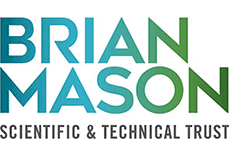
Reuben Lane, West Coast Penguin Trust Ranger for several years until 2016, was elected as Chair last week at the Trust’s AGM.
Despite relinquishing his role as Ranger, he maintained a close relationship with the Trust, attending meetings when he could and providing support and advice over the intervening years. He was then elected as Trustee in January and volunteered his services as Chair, taking over the reins from Kerry-Jayne Wilson.
Mr Lane said:
“After 13 years at the helm, leading the Trust in both governance and science, Kerry-Jayne gave two years’ notice that she wanted to let someone else take over. She has kept the Trust on a successful path based on scientific evidence for guidance and decision-making and has contributed many thousands of hours to further conservation of penguins and other endangered seabirds here on the Coast.
“We are indebted to Kerry-Jayne and I wanted to ensure that she can put time into her next book project by freeing her up from some of the time-consuming duties that come with the Chair role. We’re pleased and relieved that Kerry-Jayne will remain as Trustee and science advisor to the Trust.
“I’m looking forward to taking the Trust forward and leading our hugely committed and capable team as we build on the strengths that Kerry-Jayne has developed over the years.”
With the penguin breeding season getting underway in recent weeks, the Trust is preparing for some key projects including monitoring Fiordland crested penguins or tawaki in South Westland to better understand the impact of big seed or mast events and tracking blue penguins to learn more about their marine ecology. Master’s student, Luisa von Salis Soglio, will be joining the Trust in September to help with blue penguin monitoring and she will be collating all the blue penguin data the Trust has gathered since it began work in the Charleston area.
Mr Lane added:
“For several years, I monitored blue penguins in the Charleston and wider Buller area, and we learned that stoat predation was not an issue for these birds but also that colony numbers continued to decline due to deaths on coast roads and due to dog attacks.
“Long term data is hugely valuable in any type of scientific study and we’re very fortunate to have Luisa helping us make the most of it. She will gather all our data together and analyse it over the next few months and her findings will help guide us in future practical actions to protect these ‘at risk’ penguins.
“In the meantime, we can never say this often enough, when living close to or visiting any coast beach, please keep your dogs on a lead or under very close control when out at the beach, and safe and secure when at home so they cannot roam.”



























